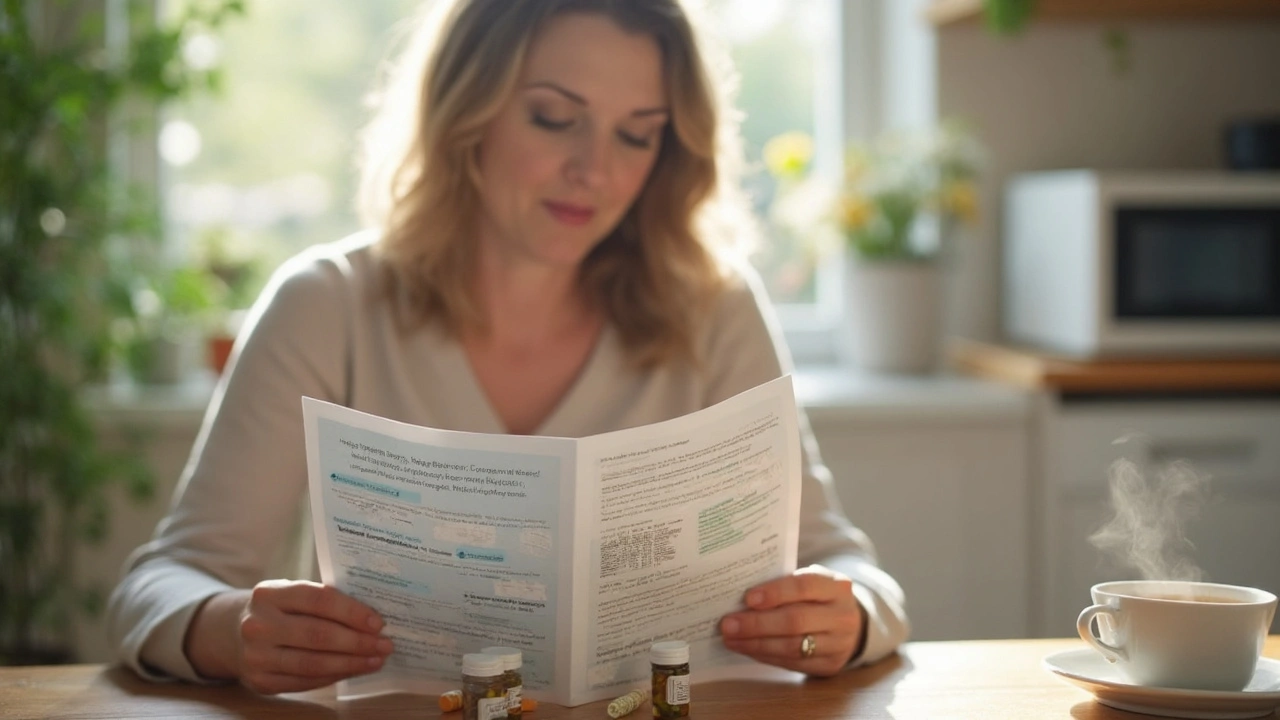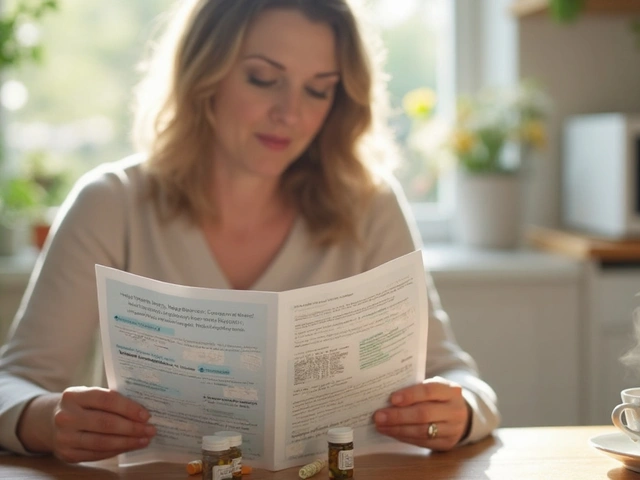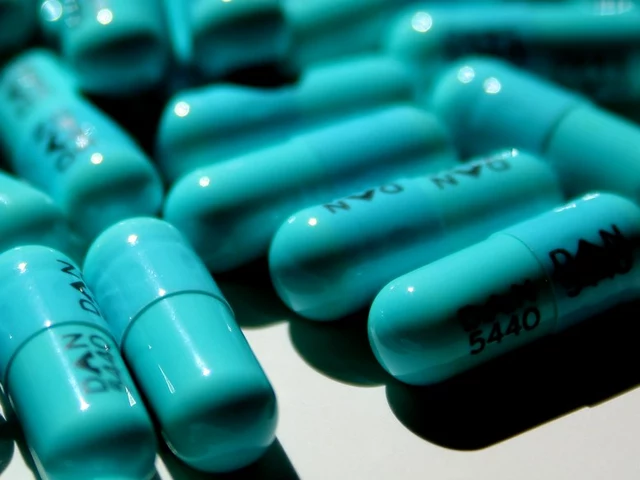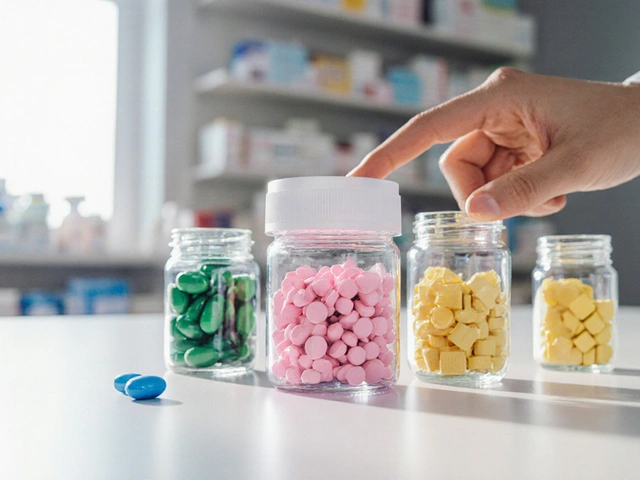Natural Desiccated Thyroid and Levothyroxine: What's in Your Pill?
If you've ever had to choose between natural desiccated thyroid (NDT) and levothyroxine, you'll know it can feel a bit like picking between VHS and Blu-ray when streaming is suddenly everywhere. The older, 'natural' NDT has been on pharmacy shelves for over a century, made from dried animal thyroid glands. Most people in North America know it by names like Armour Thyroid or NP Thyroid. Every tablet contains a mix of thyroid hormones—mostly T4 and T3—something that doesn't quite match what your own thyroid would pump out, but it's been trusted for generations.
Synthetic T4, on the other hand, is the golden child of modern endocrinology. Levothyroxine (or Synthroid, Eltroxin up here in Canada) is crafted in a lab with laser precision. Every tablet has a calculated dose of T4, the hormone your thyroid mainly makes, and nothing else. Your body converts it into T3 as needed. While this seems pretty slick on paper, life (and biochemistry) don't always cooperate perfectly, and that's where a lot of the debate starts.
So, what's actually inside? Here's a quick comparison that sometimes helps people wrap their heads around it:
| NDT | Levothyroxine | |
|---|---|---|
| Main hormones | T4 & T3 (some T2, T1, and calcitonin) | Just T4 |
| Source | Pig thyroid glands | Synthetic (lab-made) |
| Common brands | Armour, NP Thyroid, Nature-Throid | Synthroid, Eltroxin, Euthyrox |
| Approval | Approved but formula can change between batches | Strictly regulated and standardized |
| Dosing flexibility | Less precise | Available in over a dozen dosages |
The main thing that divides camps is this: NDT packs both T4 and T3, giving an immediate shot of the active hormone your body actually uses, while levothyroxine trusts your body to convert T4 into T3 as needed. In theory, both should work, but as people like to say in Alberta: theory is for the lab, not the plains. Your own biology might prefer one or the other.
The exact mix in NDT isn't really standardized—yes, they target the same hormone ratio, but pig thyroids are living tissue. Variability happens. What it means for you: batch differences are a thing, and you might notice a change in how you feel every time the pharmacy restocks. Levothyroxine doesn't play that game; every pill is the same as the last. This makes it easier to fine-tune over time, especially if your dose needs adjusting, which is pretty normal for most people with hypothyroidism.
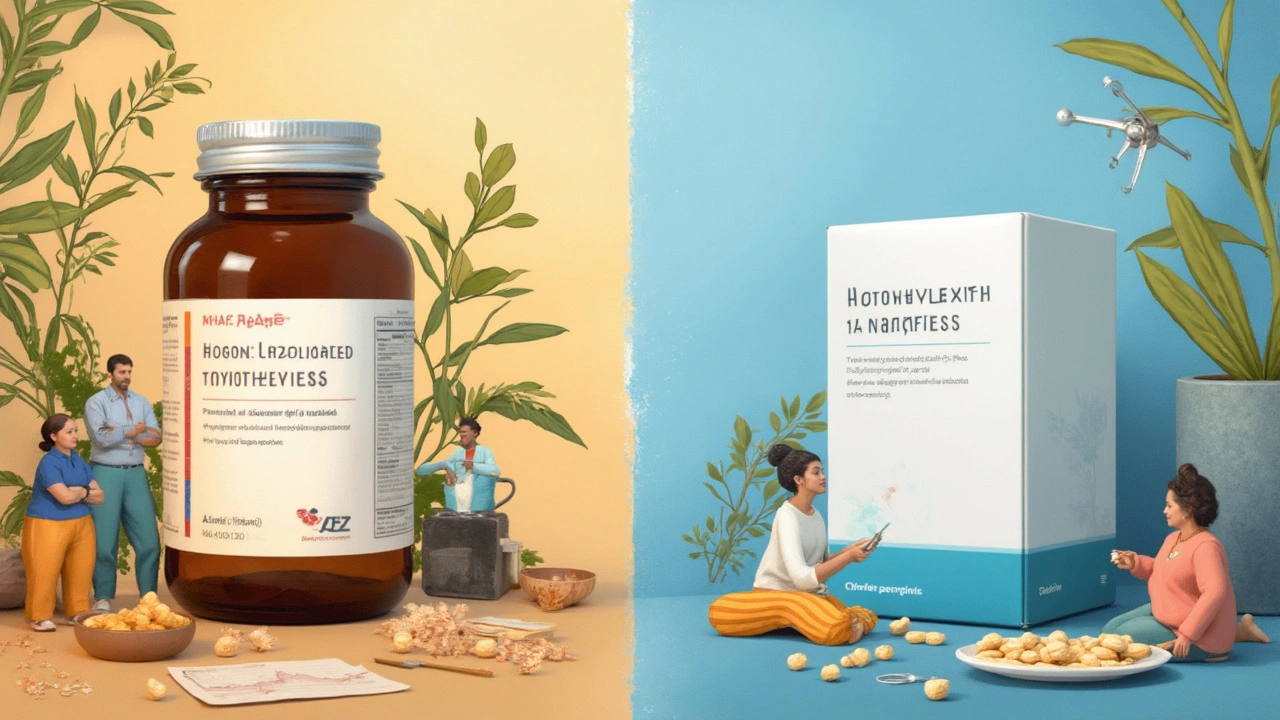
How Dosing, Efficacy, and Side Effects Compare
With such different foundations, it's no surprise dosing works differently too. People who switch from levothyroxine to NDT often notice their endocrinologist reaching for the calculator. Standard conversion charts exist, but they’re not a magic formula—it's your body's response that counts. For example, 1 grain of NDT (about 60–65 mg) contains roughly 38 mcg of T4 and 9 mcg of T3, which isn’t a direct equivalent to the usual starting dose of 50–100 mcg of levothyroxine. Endos tweak until your TSH, T3, and T4 blood levels hit the sweet spot—or, if we're being honest, until you finally stop feeling wiped out, cold, and foggy.
Efficacy is where the debate heats up. A few large studies out there—including a widely cited 2018 randomized trial—showed that most people do equally well on either med as long as blood tests are in range. But real-world stories muddy things: some NDT users swear by the boost of T3, claiming sharper mental focus, warmer hands, and an actual return to pre-hypothyroid energy (imagine!). Others feel jittery, anxious, or notice heart palpitations—classic signs of too much T3, which kicks in faster than T4.
Levothyroxine's slower, steadier approach sits well with most doctors, partly because it brings fewer surprises. Side effects are usually about the dose, not the formula: basically, if you're on too high a dose, your heart will let you know. Too low? You'll feel like a bear in hibernation. That said, there's a stubborn group—maybe 10–15% from current research—who never seem to feel right on T4 alone, even with the 'perfect' bloodwork. This is where combo therapy, or a move to NDT, sometimes makes sense.
Let’s talk brands and consistency. You'd hope every batch of thyroid meds would act the same, but in 2020, two big NDT brands had recalls across North America because of potency shifts—some pills were too weak, some too strong. That can make a huge difference, especially for folks sensitive to hormone changes. Levothyroxine isn’t immune to formulation tweaks (inactive ingredients can impact absorption), but major swings in hormone content are rare. Shake-ups usually make the news up here in Calgary because, well, half the city is on thyroid meds once you hit a certain age.
A fun fact—what you eat, or when you take your pill, can change how much levothyroxine your body absorbs. Coffee, high-fiber breakfasts, even supplement timing can all mess with absorption. Your pharmacist might push you to take it on an empty stomach, first thing in the morning, and wait a half hour before eating. For some, that's a small price for stability. With NDT, timing isn't quite as strict, but some people still notice better results on an empty stomach.
Digging into labs and outcomes, here's another twist: T3 levels often shoot higher on NDT, which might sound great at first, but you can overshoot the runway. Unchecked, too much T3 increases the risk of heart rhythm troubles, bone thinning, and anxiety. So anyone on NDT needs careful, regular checkups—especially older adults or those with heart conditions. With levothyroxine, the risk is lower, but it’s still crucial to keep an eye on things; everybody metabolizes these drugs at their own quirky pace.
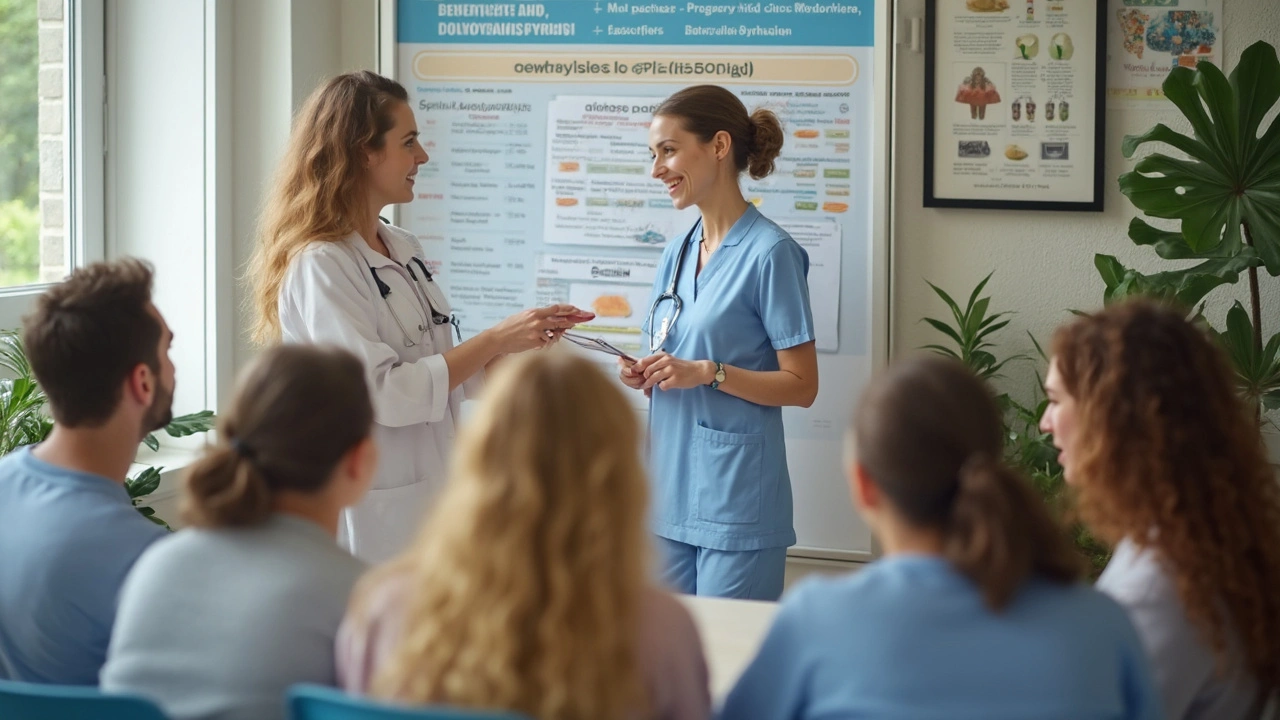
Patient Satisfaction: Real Experiences and Practical Tips
It's not all about numbers—how people actually feel can be a messy, personal story. Ask around Calgary clinics or support forums, and you'll hear just about every take under the sun: “NDT gave me my life back” versus “I felt like I was running on fumes until I got off it.” The weirdest part? Doctors often say patients report better satisfaction with NDT, even when their blood levels look the same as on levothyroxine. Scientists haven't nailed down why—a placebo effect, or maybe it's something else in the mix. Maybe some people just need that jolt of T3 to feel ‘normal.’
If you’re trying to sort this for yourself, here are a few things I’ve noticed tend to make life easier:
- Start slow and test often: Especially with NDT, don’t rush dose changes. Your mood and body need weeks to catch up, and swinging the dose too fast can invite trouble.
- Pick a consistent brand: Whether it’s NDT or levothyroxine, try to stick with the same product. Pharmacy swaps can shift your results, even though they’re technically ‘equivalent.’
- Mind your timing: For levothyroxine, set an early alarm, take your dose with a glass of water, and don’t eat for 30–60 minutes. For NDT, experiment a bit—some folks find half a dose in the morning, half in the afternoon steadies things out.
- Track symptoms, not just labs: Write down how you feel—energy, sleep, mood. Bring these notes to your doctor, not just your blood test results. They matter.
- Don’t give up if you’re not satisfied: If you’re still dragging after a few months at the ‘right’ TSH, talk about switching. There are many levothyroxine alternatives out there—some people do best when they try more than one approach.
For people with certain conditions—like celiac disease, inflammatory bowel disease, or anyone taking a giant box of daily meds—absorption can be a headache. Some need higher doses; others benefit from liquid or gel forms of their thyroid meds. A handful go right off the usual script and use compounded meds, though those aren’t as easy to find and insurance rarely covers them here in Canada.
Here's a practical tip I’ve picked up: Check your insurance forms, if you have coverage. Levothyroxine is usually dirt cheap and widely covered, but most NDT brands are considered ‘special’—meaning you might foot the bill yourself unless there's an ironclad reason. And shortages happen, even in big cities like Calgary. If you’re happy on NDT, talk to your pharmacy about options if there’s a shortage; sometimes they can source from niche suppliers, but it might mean a switch between brands, and, as mentioned above, that can change how you feel.
As medical guidelines go, both options are considered valid, assuming you don’t have allergies or absorption issues, but doctors and pharmacists usually steer folks toward levothyroxine first. NDT is often reserved for people who've tried T4 alone and still feel lousy, or who have very specific absorption issues. That said, the “patient knows best” movement is gathering steam—more people are encouraged to take charge, ask questions, and make the call with their provider. If you’re in that camp, bring detailed notes, advocate for yourself, and don’t settle if things aren’t working.
Still on the fence? Talk to folks in real life. Not just online forums, but people you trust: relatives, friends, co-workers. Thyroid issues are way more common than most like to admit. Someone at your gym, local coffee shop, or hockey league probably has a story, and sometimes the best advice isn’t hidden in studies—it’s from the guy who figured out how to finally feel human again picking the right pill.
So, whether you’re on natural desiccated thyroid or levothyroxine, the most important thing is you—how you feel every day. The right medication lets you get back to what actually matters: mornings without brain fog, afternoons without crashes, hockey practices where you're not dragging your feet. Always chase that, whichever road gets you there.

